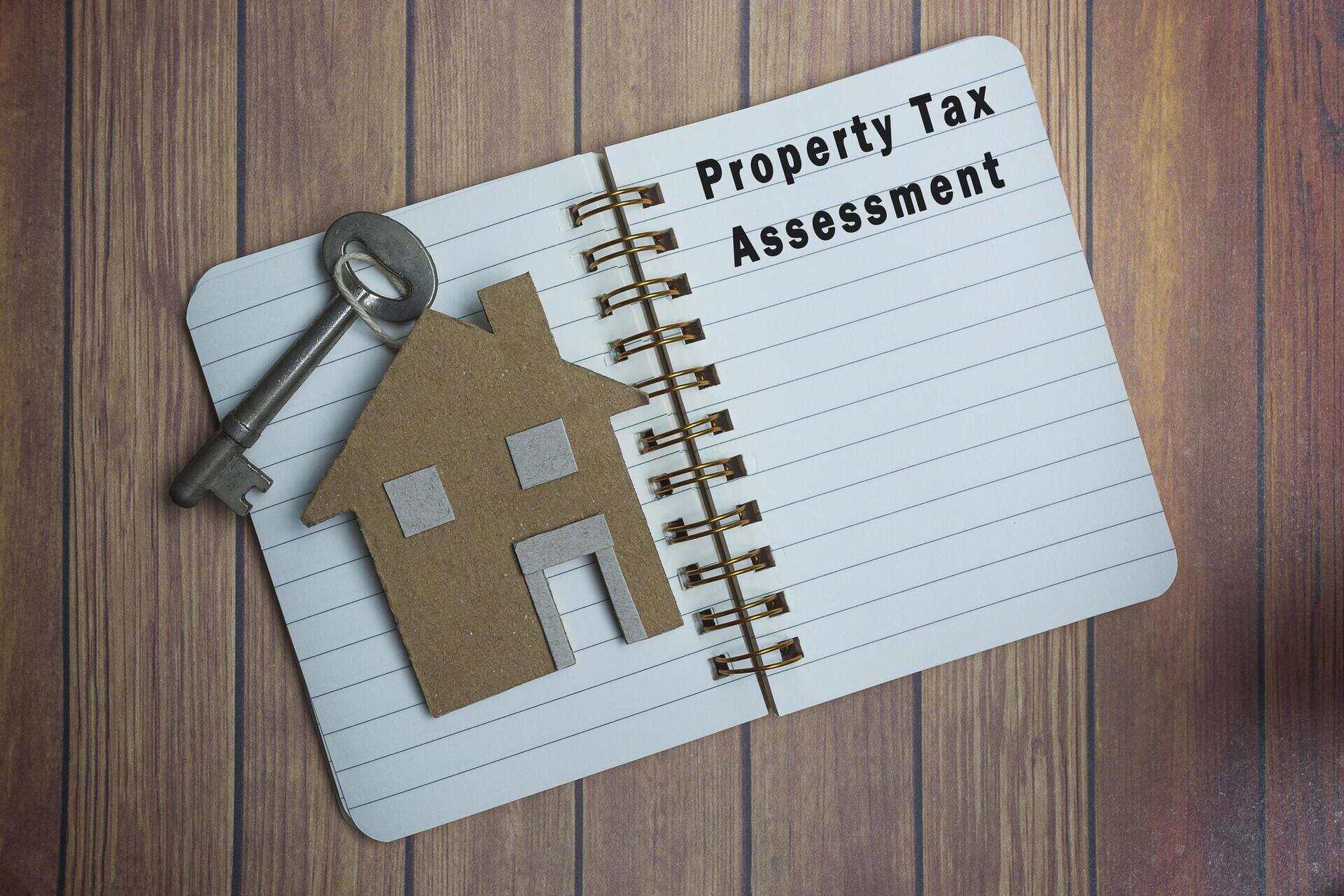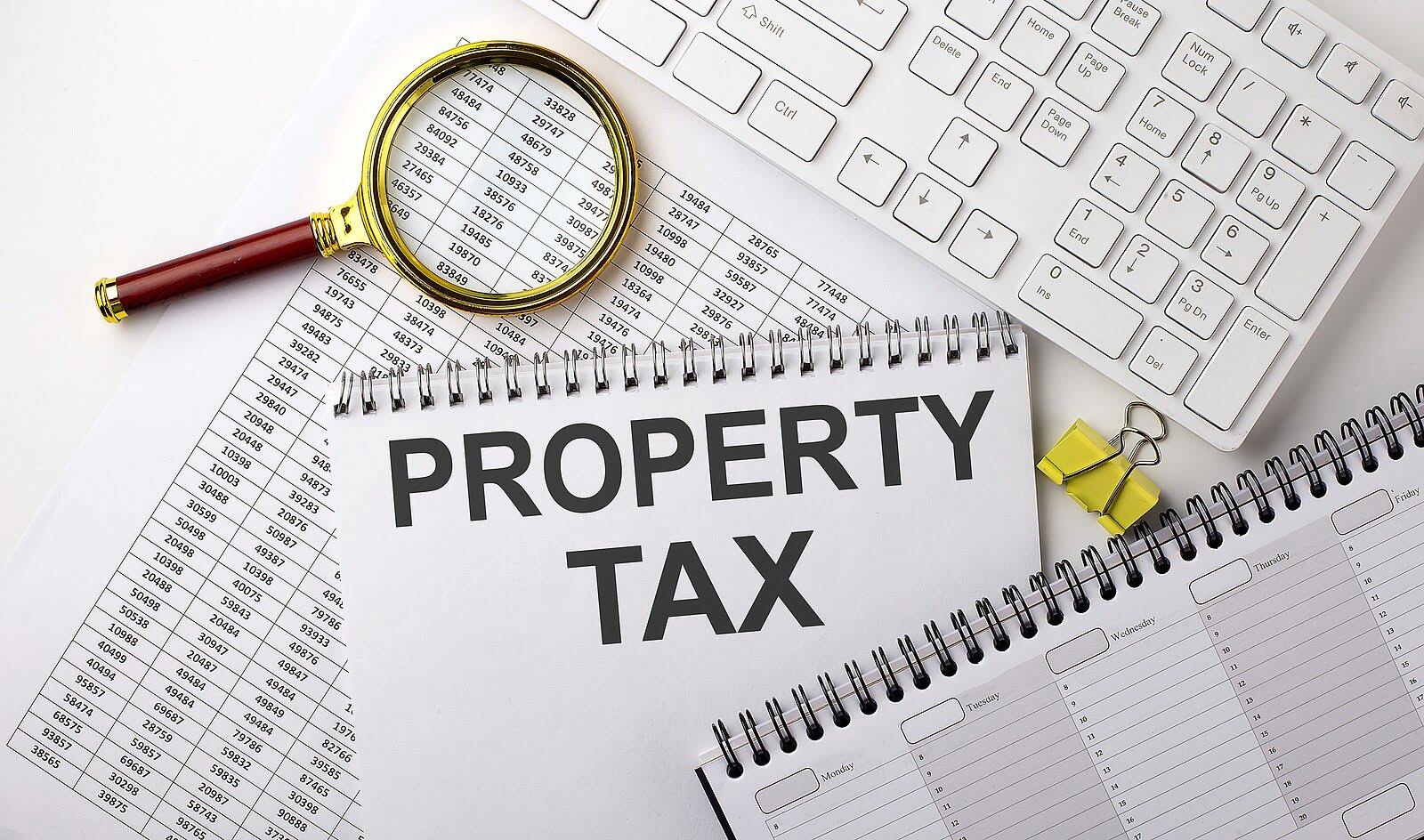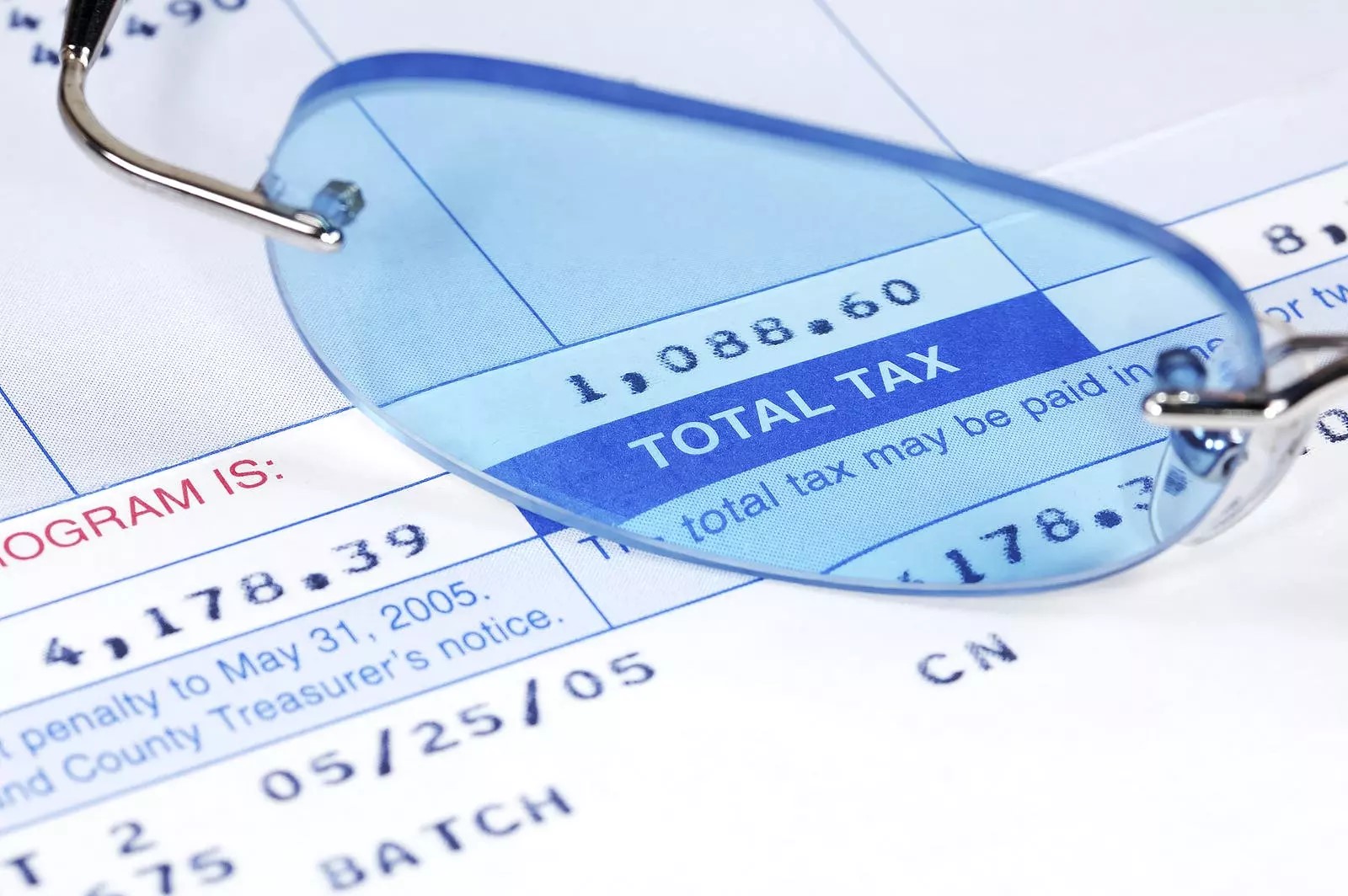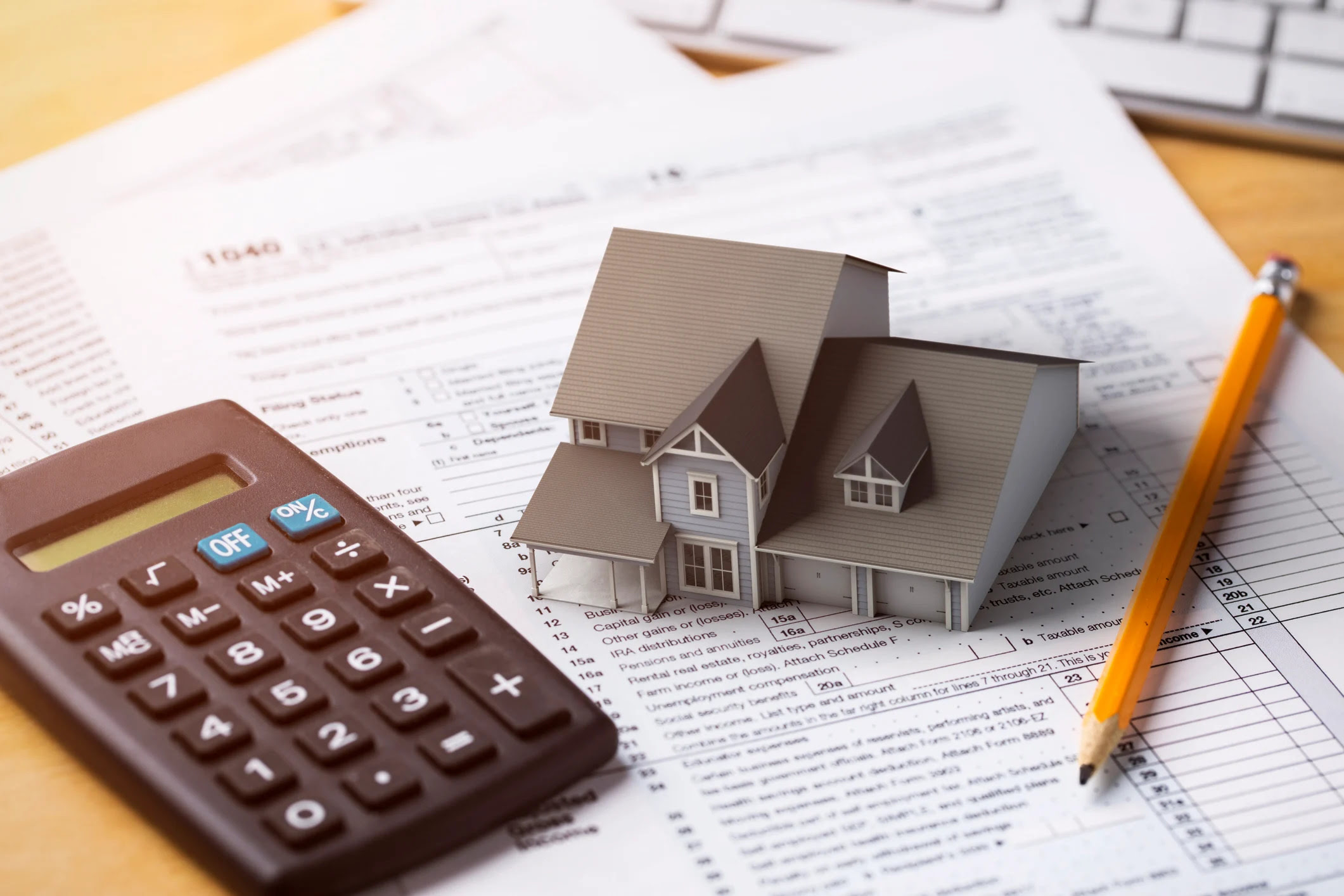Home>diy>Building & Construction>How Are Property Taxes Assessed On A New Construction Home


Building & Construction
How Are Property Taxes Assessed On A New Construction Home
Modified: January 9, 2024
Learn how property taxes are assessed on new construction homes and the factors that determine the amount. Find out more about building construction and property taxes.
(Many of the links in this article redirect to a specific reviewed product. Your purchase of these products through affiliate links helps to generate commission for Storables.com, at no extra cost. Learn more)
Introduction
When it comes to purchasing a new construction home, there are many factors to consider – from the location and design to the quality of materials used. However, one important aspect that often gets overlooked is the assessment of property taxes. Understanding how property taxes are assessed on a new construction home is crucial for both buyers and homeowners, as it directly impacts their financial obligations.
Property taxes play a vital role in funding public services such as schools, roads, and emergency services. They are typically calculated based on the assessed value of the property, which is determined by local government assessors. The assessment process can vary depending on the jurisdiction, but it generally involves evaluating the property’s market value and considering other factors that may affect its worth.
In the case of a new construction home, assessing property taxes can be a unique challenge. Unlike an existing property, which has a history of ownership and market values, a new construction home presents a blank slate for assessors. They must take into account various factors specific to new construction homes to arrive at a fair and accurate assessment.
The role of the assessor’s office is pivotal in determining the property taxes for new construction homes. These professionals have the expertise and knowledge to evaluate the value of a property based on several factors, such as the construction cost, land value, location, and amenities.
In this article, we will delve into the intricacies of assessing property taxes for new construction homes. We will explore the factors considered by assessors, the steps involved in the assessment process, and the challenges faced along the way. Additionally, we will examine the appeals process for those who believe their property tax assessment is inaccurate or unfair.
By gaining a comprehensive understanding of how property taxes are assessed on new construction homes, prospective buyers and homeowners can better plan their finances and ensure they are fulfilling their tax obligations.
Key Takeaways:
- Assessing property taxes for new construction homes involves evaluating factors such as construction cost, land value, location, and unique features. Understanding this process empowers homeowners to plan their finances effectively and contribute to their community’s development.
- The appeals process provides property owners with the opportunity to challenge inaccurate or unfair property tax assessments. By gathering evidence and participating in the appeals process, homeowners can seek a resolution and ensure fairness in their property tax obligations.
Read more: How Are Taxes Assessed On New Construction
Understanding Property Taxes
Before delving into the assessment of property taxes on new construction homes, it is important to have a clear understanding of what property taxes entail. Property taxes are levied by local governments to generate revenue for essential public services and infrastructure development.
The tax amount is typically based on the assessed value of the property, which is determined by the local government assessors. The assessed value is an estimate of the property’s market value and serves as the basis for calculating property taxes. The tax rate is then applied to the assessed value to determine the annual property tax amount.
Property taxes are essential for maintaining and improving public services in a community. They fund various services such as schools, public transportation, parks, fire departments, and police departments. Additionally, property taxes contribute to the overall economic development of the area by supporting infrastructure projects and attracting businesses.
The exact tax rate and assessment process can vary depending on the location and local jurisdiction. It is important to research and understand the specific regulations and guidelines set by the local government regarding property taxes. This will help homeowners and potential buyers plan their finances accordingly.
It is worth noting that property taxes are subject to change over time. They are typically assessed annually and can be influenced by factors such as changes in property values, local tax policies, and improvements made to the property. It is important for homeowners to stay informed about these changes to accurately estimate their future tax obligations.
Understanding property taxes is crucial, especially for individuals considering the purchase of a new construction home. The assessment process for new construction homes differs in some aspects from that of existing properties. In the following sections, we will examine the factors that assessors consider when determining property taxes for new construction homes and the steps involved in the assessment process.
Assessing Property Taxes
Assessing property taxes involves evaluating the value of a property to determine the amount owed in taxes. Assessors, who work for the local government, play a crucial role in this process. They are responsible for examining various factors that contribute to the overall value of a property and determining its assessed value.
When it comes to new construction homes, the assessment process can be complex. Assessors must take into account several factors and considerations specific to new construction to arrive at a fair and accurate assessment. These factors can include:
- Construction Cost: The cost of constructing the home is an essential factor in the assessment. Assessors typically consider the total expenses incurred in building the home, including labor, materials, permits, and other associated costs.
- Land Value: The value of the land on which the new construction home is built is another crucial consideration. Assessors analyze the market value of the land to determine its contribution to the overall assessed value.
- Location: The location of the property also plays a significant role in the assessment process. Assessors take into account factors such as proximity to amenities, schools, transportation, and overall desirability of the neighborhood.
- Comparable Properties: Assessors often compare the new construction home to similar properties in the area to gain insight into its market value. This helps in ensuring a fair and consistent assessment.
- Improvements and Amenities: Assessors consider any additional improvements or amenities present in the new construction home. Features such as upgraded finishes, energy-efficient appliances, or custom additions can impact the overall assessed value.
It is important to note that the assessment process may vary depending on the local jurisdiction and regulations. Some jurisdictions may use a combination of appraisals, market data, and computer models to determine property values.
Once assessors have evaluated these factors, they determine the assessed value of the new construction home. This assessed value is used as the basis for calculating property taxes. The tax rate, set by local taxing authorities, is applied to the assessed value to determine the annual property tax amount owed by the homeowner.
Assessing property taxes for new construction homes can be a challenging task. The unique nature of these properties and the absence of historical data require assessors to rely on various indicators and factors to arrive at an accurate assessment. It is important for homeowners and potential buyers to have a clear understanding of how the assessment process works to ensure transparency and accuracy in property tax assessment.
Factors Considered in Assessing Property Taxes for a New Construction Home
Assessing property taxes for a new construction home involves considering several key factors that contribute to the overall value of the property. These factors determine the assessed value, which is used as the basis for calculating property taxes. Understanding these factors can help homeowners and potential buyers understand how their property tax obligations are determined. Here are some of the factors commonly considered in assessing property taxes for new construction homes:
- Construction Cost: The cost of construction is a fundamental factor in assessing property taxes for a new construction home. Assessors take into account the total expenses incurred in building the home, including the cost of materials, labor, permits, and other associated costs.
- Land Value: The value of the land on which the new construction home is built is also considered. Assessors evaluate the market value of the land and its location to determine its contribution to the overall assessed value.
- Location: The location of the new construction home plays a significant role in the assessment process. Assessors consider factors such as proximity to amenities, schools, transportation, and the overall desirability of the neighborhood. Properties in highly sought-after areas or those located in close proximity to desirable amenities may have higher assessed values and, subsequently, higher property tax obligations.
- Size and Square Footage: The size and square footage of the new construction home are important factors considered in the assessment. Assessors evaluate the total living area, including the number of rooms, bathrooms, and overall floor space to determine the assessed value.
- Structural Features and Improvements: Assessors take into account any additional structural features or improvements made to the new construction home. Upgraded finishes, energy-efficient appliances, custom additions, or other unique features may contribute to a higher assessed value and, consequently, higher property taxes.
- Comparable Properties: Assessors often compare the new construction home to similar properties in the area to gain insight into its market value. This helps ensure a fair and consistent assessment. They may consider factors such as sale prices of comparable properties, recent assessments in the neighborhood, and market trends.
- Economic Conditions: Assessors may also take into account the prevailing economic conditions in the area when assessing property taxes. Factors such as market demand, inflation rates, and economic growth can influence property values and subsequently impact property tax assessments.
It is important to note that the weight assigned to each factor may vary depending on local regulations and jurisdiction. Some factors may carry more significant weight than others, impacting the overall assessed value and property tax obligations.
By considering these factors, assessors strive to establish a fair and accurate assessment of a new construction home’s value. It is essential for homeowners and potential buyers to be aware of these factors in order to understand how their property tax obligations are calculated.
The Role of the Assessor’s Office
The assessment of property taxes for new construction homes is carried out by the assessor’s office, which plays a crucial role in determining the value of properties within a jurisdiction. The assessor’s office is responsible for assessing and assigning values to properties for tax purposes, including new construction homes. Here are some key responsibilities and functions of the assessor’s office:
- Property Valuation: The primary role of the assessor’s office is to determine the value of properties within their jurisdiction. This includes evaluating both land value and improvements made to the property, such as new construction homes. The assessed value serves as the basis for calculating property taxes.
- Data Collection and Analysis: Assessors collect data on various factors that impact property values. They gather information on land characteristics, market trends, comparable properties, and local regulations. This data is then analyzed and used to estimate the value of properties.
- Maintaining Property Records: The assessor’s office maintains accurate and up-to-date records of all properties within their jurisdiction. These records include property descriptions, ownership information, assessed values, and any changes or improvements made to the property over time.
- Educating Property Owners: The assessor’s office also plays a role in educating property owners about the assessment process and property tax obligations. They provide information on how assessments are conducted, explain the factors considered, and address any questions or concerns from property owners.
- Responding to Property Inquiries: Property owners can contact the assessor’s office with inquiries or disputes regarding their property assessments. The assessor’s office is responsible for reviewing and addressing these inquiries, providing explanations, and resolving any discrepancies or concerns.
- Assessment Appeals Process: In the event that a property owner disagrees with their property assessment, the assessor’s office is responsible for managing the assessment appeals process. They provide information and guidance on filing appeals, review evidence provided by property owners, and make determinations based on the available evidence.
- Monitoring Market Changes: Assessors keep a close eye on market changes that could impact property values. They consider factors such as economic fluctuations, neighborhood developments, and changes in property demand. This helps ensure that assessments reflect the current market conditions.
The assessor’s office plays a critical role in maintaining fairness and accuracy in property tax assessments. Their expertise and understanding of local property markets, regulations, and procedures contribute to the overall transparency and consistency of the property assessment process.
By involving the assessor’s office, property owners can have confidence that their property assessments are carried out in a consistent and unbiased manner. In case of any questions or concerns, property owners can rely on the resources and expertise of the assessor’s office to provide guidance and address their needs.
When purchasing a new construction home, be aware that property taxes are typically based on the assessed value of the property. This value is determined by the local tax assessor and may take into account the cost of the land, the cost of construction, and any improvements made to the property. It’s important to factor in potential property tax increases when budgeting for a new construction home.
Steps Involved in Assessing Property Taxes for a New Construction Home
Assessing property taxes for a new construction home involves a series of steps carried out by the assessor’s office. These steps are designed to ensure a fair and accurate assessment of the property’s value. Understanding the process can provide homeowners and potential buyers with insights into how their property tax obligations are determined. Here are the typical steps involved in assessing property taxes for a new construction home:
- Data Collection: The first step in assessing property taxes for a new construction home is gathering relevant data. This includes information on the home’s square footage, number of rooms and bathrooms, construction cost, and any additional features or upgrades.
- Site Visit: Assessors often conduct a site visit to the new construction home to gather additional information and evaluate the property. During the visit, they may assess the quality of construction, examine the materials used, and take note of any unique features or improvements.
- Comparable Analysis: Assessors compare the new construction home to similar properties in the area to gauge its market value. This involves looking at recent sales of comparable properties, assessing market trends, and considering other relevant factors that may impact the property’s value.
- Evaluation of Land: Assessors evaluate the value of the land on which the new construction home is built. They consider factors such as location, desirability of the neighborhood, and proximity to amenities. This evaluation helps determine the contribution of the land to the overall assessed value.
- Calculating Replacement Value: Assessors calculate the replacement value of the new construction home by considering the actual construction costs, including materials, labor, permits, and other associated expenses. This helps determine the value of the improvements made on the property.
- Final Assessment: Based on the data collected, site visits, comparable analysis, land evaluation, and replacement value calculation, the assessor’s office arrives at a final assessed value for the new construction home. This assessed value serves as the basis for calculating property taxes.
- Notification of Assessment: Once the assessment is complete, the assessor’s office notifies the homeowner of the assessed value, typically through a mailed notice. This notice includes details of the assessed value, the tax rate, and the resulting property tax obligation.
- Tax Payment and Review: The homeowner is responsible for paying the property taxes based on the assessed value and tax rate determined by the assessor’s office. It is important for homeowners to review the assessment and reach out to the assessor’s office with any questions or concerns.
It is important to note that the specific steps and procedures may vary depending on the local jurisdiction and regulations. Some jurisdictions may incorporate additional steps or utilize different methods to assess property taxes for new construction homes.
By following these steps, the assessor’s office aims to provide an accurate and fair assessment of the new construction home’s value. It is essential for homeowners to understand this process to ensure transparency and to address any potential discrepancies in their property tax assessments.
Challenges in Assessing Property Taxes for New Construction Homes
The assessment of property taxes for new construction homes presents unique challenges for assessors. Unlike existing properties with a history of ownership and market values, new construction homes have no prior sales data or established market values. Assessors must navigate these challenges to ensure a fair and accurate assessment. Here are some common challenges faced when assessing property taxes for new construction homes:
- Limited Historical Data: Assessors often lack historical sales data for new construction homes in the area. Without this data, they must rely on other indicators such as construction costs, land values, and market trends to estimate the property’s value.
- Unique Features and Upgrades: New construction homes often come with unique features, customizations, and upgrades that can significantly impact their value. Assessors must carefully evaluate these factors and consider their contributions to the overall assessed value.
- Varying Construction Costs: The cost of constructing a new home can vary significantly depending on factors such as location, size, design, and materials used. Assessors must accurately assess the actual construction costs to determine the value of the improvements made.
- Misrepresentation of Property Information: In some cases, property owners may provide inaccurate or incomplete information about the new construction home. This can pose challenges for assessors in accurately assessing the property’s value. Assessors must rely on their expertise and conduct thorough research to ensure accurate assessments.
- Evolving Markets: Real estate markets are constantly changing, and new construction homes can be particularly susceptible to fluctuations. Assessors must stay updated on market trends, economic conditions, and neighborhood developments to accurately assess the value of new construction homes.
- Local Regulations and Guidelines: Each jurisdiction may have its own specific regulations and guidelines for assessing property taxes. Assessors must navigate these regulations to ensure compliance and fairness in their assessments.
- Appeals and Disputes: Property owners may challenge their property tax assessments if they believe they are inaccurate or unfair. The appeals process can present additional challenges for assessors as they need to review evidence, address concerns, and make determinations based on the available information.
These challenges highlight the complexities of assessing property taxes for new construction homes. Assessors must rely on their expertise, research, and market knowledge to overcome these challenges and arrive at fair and accurate assessments. By doing so, they ensure that property tax obligations are calculated fairly and provide transparency to homeowners and potential buyers.
Appeals Process for Property Tax Assessments
In the event that a property owner believes their property tax assessment is inaccurate or unfair, most jurisdictions provide an appeals process. This process allows property owners to challenge the assessed value of their property and seek a reconsideration or adjustment. Here are the typical steps involved in the appeals process for property tax assessments:
- Review the Assessment Notice: The first step is for the property owner to carefully review the assessment notice they receive from the assessor’s office. This notice includes details of the assessed value, the tax rate, and the resulting property tax obligation. It is important to understand the basis for the assessment before proceeding with an appeal.
- Research and Gather Evidence: Property owners should conduct thorough research and gather supporting evidence to make their case. This may include recent sale prices of comparable properties in the area, independent appraisals, or any documentation that proves inaccuracies in the assessment.
- File an Appeal: Property owners must follow the specific procedure outlined by their local jurisdiction to file an appeal. This typically involves submitting a formal appeal form to the appropriate authority, such as the assessor’s office or a local board of assessment appeals.
- Present the Case: Once the appeal is filed, property owners may be required to attend a hearing or present their case before an appeals board. This is an opportunity for property owners to present their evidence, explain their concerns, and articulate why they believe the assessment is incorrect or unfair.
- Assessor’s Response: After the property owner presents their case, the assessor’s office or appeals board will review the evidence and respond to the appeal. They may request additional information, conduct their own assessment, or provide a decision based on the presented evidence.
- Appeals Board Decision: The appeals board will make a decision regarding the property tax assessment appeal. They may choose to uphold the original assessment, modify the assessed value, or request further review. Their decision is typically communicated to the property owner in writing.
- Payment or Refund: Depending on the outcome of the appeal, the property owner may need to adjust their property tax payments. If the appeal is successful and the assessed value is reduced, the property owner may be eligible for a refund of any overpaid taxes.
It is important to note that the specific steps and requirements of the appeals process may vary depending on the jurisdiction. Property owners should consult their local assessor’s office or relevant authority for detailed instructions and guidance on how to proceed with an appeal.
The appeals process provides property owners with the opportunity to address any concerns they may have regarding their property tax assessment. It is an important mechanism to ensure fairness and accuracy in property tax calculations. By participating in the appeals process, property owners can seek a resolution and ensure that their property tax obligations align with the true value of their property.
Conclusion
Assessing property taxes for new construction homes is a complex process that requires careful evaluation of various factors. The assessor’s office plays a pivotal role in determining the assessed value, which serves as the basis for calculating property taxes. Understanding this process is crucial for homeowners and potential buyers to ensure transparency and accurately plan their financial obligations.
Throughout the assessment process, numerous factors are considered, such as construction costs, land value, location, and unique features. Assessors navigate challenges, such as limited historical data and varying construction costs, to arrive at a fair and accurate assessment.
The appeals process provides an avenue for property owners to challenge their property tax assessments if they believe they are inaccurate or unfair. By gathering relevant evidence and presenting their case, property owners can seek a reconsideration or adjustment of their assessed value.
It is important for homeowners and potential buyers to stay informed about their local jurisdiction’s regulations and guidelines regarding property taxes. This includes understanding the assessment process, becoming familiar with the factors that influence property values, and being aware of any changes in tax rates or local policies.
Property taxes play a vital role in funding public services and infrastructure development in communities. By fulfilling their property tax obligations, homeowners contribute to the overall wellbeing and economic development of their local area.
In conclusion, understanding how property taxes are assessed on new construction homes empowers homeowners and potential buyers to navigate the financial responsibilities associated with their property. By being aware of the assessment process, factors considered, and the appeals process, individuals can ensure fairness and accuracy in their property tax assessments. With this knowledge, homeowners can plan their finances effectively and contribute to the growth and improvement of their community.
Frequently Asked Questions about How Are Property Taxes Assessed On A New Construction Home
Was this page helpful?
At Storables.com, we guarantee accurate and reliable information. Our content, validated by Expert Board Contributors, is crafted following stringent Editorial Policies. We're committed to providing you with well-researched, expert-backed insights for all your informational needs.















0 thoughts on “How Are Property Taxes Assessed On A New Construction Home”